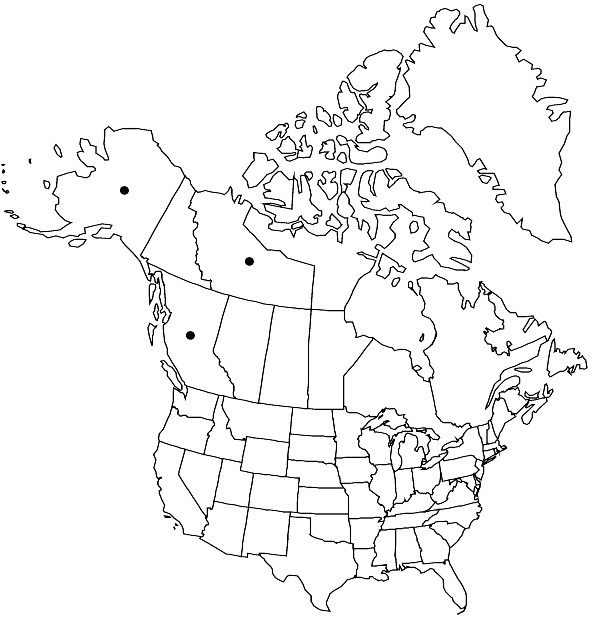Difference between revisions of "Barbula convoluta var. gallinula"
Phytologia 44: 195, figs. 15–19. 1979,.
imported>Volume Importer |
imported>Volume Importer |
||
| Line 43: | Line 43: | ||
|publication year= | |publication year= | ||
|special status= | |special status= | ||
| − | |source xml=https:// | + | |source xml=https://bitbucket.org/aafc-mbb/fna-data-curation/src/2e0870ddd59836b60bcf96646a41e87ea5a5943a/coarse_grained_fna_xml/V27/V27_764.xml |
|subfamily=Pottiaceae subfam. Barbuloideae | |subfamily=Pottiaceae subfam. Barbuloideae | ||
|genus=Barbula | |genus=Barbula | ||
Latest revision as of 21:28, 5 November 2020
Specialized asexual reproduction as very large, oval gemmae in axils of distal leaves. Sporophytes absent in range of flora.
Habitat: Rock, usually limestone, or soil or humus
Elevation: low to moderate elevations (50-400 m)
Distribution

B.C., N.W.T., Alaska.
Discussion
The massive, dark gemmae of var. gallinula, occuring usually one per leaf axil, are easily visible under the dissecting microscope and rival the leaves in size. Although the leaf apices of var. gallinula are ovate and somewhat cucullate, lacking an apiculus, certain undoubted var. convoluta specimens match them; thus the axillary gemmae are needed for sure identification. This taxon is apparently fairly abundant at Virginia Falls on the South Nahanni River, Northwest Territories.
Selected References
None.
Lower Taxa
None.
... more about "Barbula convoluta var. gallinula"